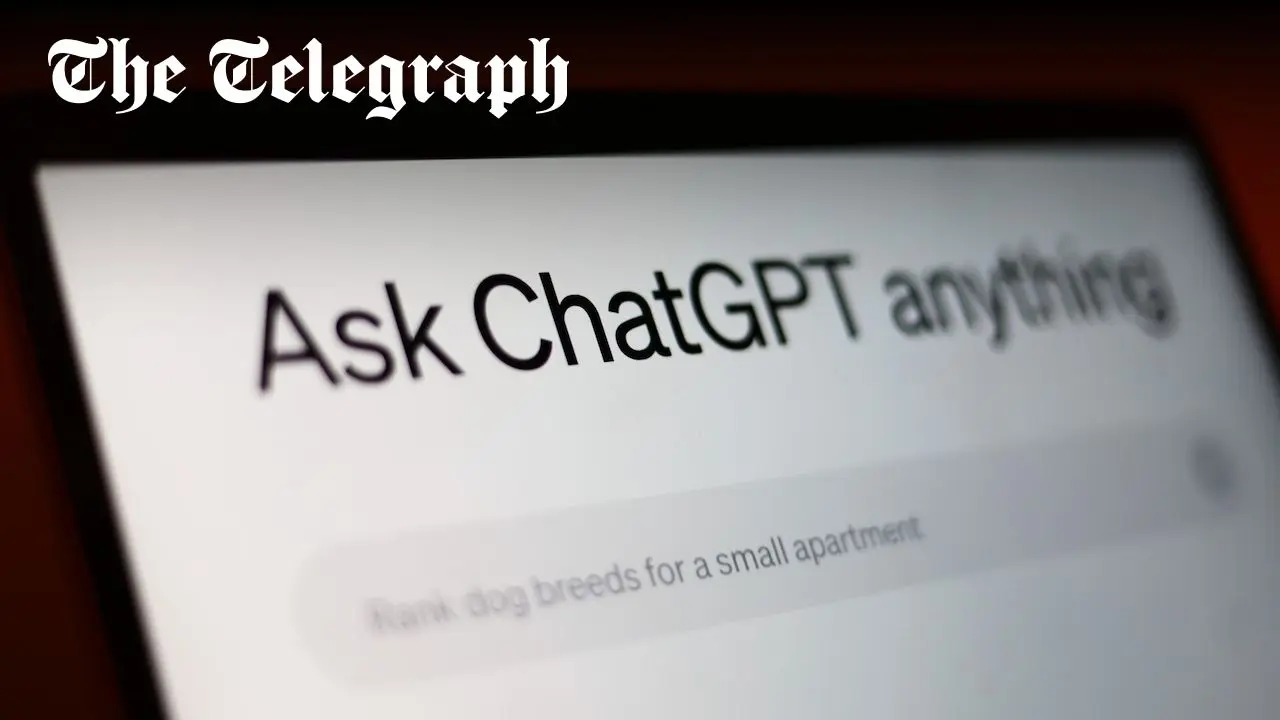AI's Impact on UK Job Market: Entry-Level Positions Plummet Post-ChatGPT Launch
2 Sources
2 Sources
[1]
Number of new UK entry-level jobs has dived since ChatGPT launch - research
Vacancies for graduate jobs, apprenticeships, internships and junior jobs with no degree requirement have dropped 32%, Adzuna finds The number of new entry-level UK jobs has dropped by almost a third since the launch of ChatGPT, new figures suggest, as companies use AI to cut back the size of their workforces. Vacancies for graduate jobs, apprenticeships, internships and junior jobs with no degree requirement have dropped 32% since the launch of the AI chatbot in November 2022, research by the job search site Adzuna released on Monday has found. These entry-level jobs now account for 25% of the market in the UK, down from 28.9% in 2022. It comes as businesses increasingly look to AI as a route to improve efficiency and reduce staff numbers. This month the chief executive of BT, Allison Kirkby, said advances in AI could presage deeper job cuts at the telecoms company, after it outlined plans two years ago to shed between 40,000 and 55,000 workers. Meanwhile, Dario Amodei, the boss of the $61bn (£44.5bn) AI developer Anthropic, has warned the technology could wipe out half of all entry-level office jobs in the next five years, and push up unemployment by between 10% and 20%. The figures from Adzuna follow a separate warning from its rival job search site Indeed, which reported last week that university graduates are facing the toughest job market since 2018. It found the number of roles advertised for recent graduates had fallen 33% in mid-June compared with the same point last year. Big companies are increasingly relying on AI for jobs once reserved for humans. Klarna, the buy now, pay later fintech company, has said its AI assistant now manages two-thirds of its customer service queries. The US technology company IBM has said it is using AI agents to take on the work of hundreds of HR staff, although as a result it has hired more programmers and salespeople. It is still a matter of debate whether AI will do more to create or destroy human jobs. The International Monetary Fund has estimated that 60% of jobs in advanced economies such as the US and UK are exposed to AI, and that half of these jobs may be negatively affected. However, the Tony Blair Institute has said potential job losses in the private sector could be mitigated by AI creating new roles. A recent report by the consultancy PwC found that workers with AI skills were being paid 56% more than those without knowledge of the technology last year, compared with 25% the year prior. It also found that the mix of skills sought by employers is changing 66% faster in occupations most exposed to AI, such as financial analysts, than in those least exposed roles, such as physical therapists. This could mean that workers find it more difficult to keep up with changing demands for new skills. This month Peter Kyle, the technology secretary, said workers and businesses should "act now" on getting to grips with AI, or risk being left behind. He said: "I think most people are approaching this with trepidation. Once they start [using AI], it turns to exhilaration, because it is a lot more straightforward than people realise, and it is far more rewarding than people expect."
[2]
Entry-level jobs in free-fall after launch of ChatGPT
Entry-level jobs are in free-fall as the rise of AI chatbots such as ChatGPT causes low-paying and graduate roles to disappear. Recently-released data shows that the number of entry-level roles being advertised has fallen by a third since the launch of OpenAI's chatbot in November 2022. According to figures from online jobs board Adzuna, there were 214,934 entry-level jobs on offer in May this year, down by 32pc from just three years ago. This decline is outpacing the number of overall vacancy numbers, which have fallen from 1,091,909 to 858,465, or 21pc, over the same period. It comes after The Telegraph reported earlier this month that graduate hiring in the City had also dropped off dramatically since the launch of ChatGPT. This was particularly relevant in the professional services sector, where AI is threatening to automate more mundane tasks carried out by junior accountants and consultants.
Share
Share
Copy Link
Research reveals a significant decline in UK entry-level job vacancies since ChatGPT's launch, raising concerns about AI's role in reshaping the employment landscape.
AI's Growing Impact on UK Job Market
The UK job market is experiencing a significant shift as artificial intelligence (AI) technologies, particularly ChatGPT, reshape employment opportunities. Recent research by job search site Adzuna has revealed a 32% decrease in entry-level job vacancies since the launch of ChatGPT in November 2022
1
. This decline has reduced the proportion of entry-level positions in the UK job market from 28.9% in 2022 to 25% in 2025.
Source: The Telegraph
Changing Landscape of Entry-Level Opportunities
The research encompasses a range of positions, including graduate jobs, apprenticeships, internships, and junior roles without degree requirements. This trend aligns with a separate report from Indeed, another job search platform, which noted that university graduates are facing the toughest job market since 2018, with a 33% year-on-year decrease in advertised roles for recent graduates
1
.Corporate Adoption of AI and Its Consequences
Major companies are increasingly turning to AI as a means to enhance efficiency and reduce staff numbers. For instance:
- BT's CEO, Allison Kirkby, has suggested that AI advancements could lead to more significant job cuts at the telecom giant
1
. - Klarna, a fintech company, reports that its AI assistant now handles two-thirds of customer service queries
1
. - IBM is utilizing AI agents to perform tasks previously done by hundreds of HR staff
1
.
Predictions and Warnings
The impact of AI on employment is becoming increasingly apparent:
- Dario Amodei, CEO of Anthropic, warns that AI could eliminate half of all entry-level office jobs within five years and potentially increase unemployment by 10-20%
1
. - The International Monetary Fund estimates that 60% of jobs in advanced economies like the US and UK are exposed to AI, with half potentially facing negative effects
1
.
Related Stories
Skill Demand and Wage Disparities
The rise of AI is also influencing skill requirements and wage structures:
- A PwC report indicates that workers with AI skills earned 56% more than those without in 2024, up from a 25% difference the previous year
1
. - The demand for skills is evolving 66% faster in occupations most exposed to AI compared to less exposed roles
1
.
Government Response and Future Outlook
UK Technology Secretary Peter Kyle has urged workers and businesses to "act now" in adapting to AI or risk being left behind
1
. While the debate continues on whether AI will create or destroy more jobs overall, the current trend suggests a significant reshaping of the job market, particularly for entry-level positions and recent graduates2
.References
Summarized by
Navi
[2]
Related Stories
AI and Economic Shifts Reshape UK Graduate Job Market, Creating Unprecedented Challenges
25 Jun 2025•Business and Economy

AI's Impact on Entry-Level Jobs: Challenges and Opportunities for Gen Z
09 Jul 2025•Business and Economy

AI's Impact on Entry-Level Jobs: A Growing Concern for Recent Graduates
30 Jul 2025•Business and Economy

Recent Highlights
1
ByteDance's Seedance 2.0 AI video generator triggers copyright infringement battle with Hollywood
Policy and Regulation

2
Demis Hassabis predicts AGI in 5-8 years, sees new golden era transforming medicine and science
Technology

3
Nvidia and Meta forge massive chip deal as computing power demands reshape AI infrastructure
Technology





